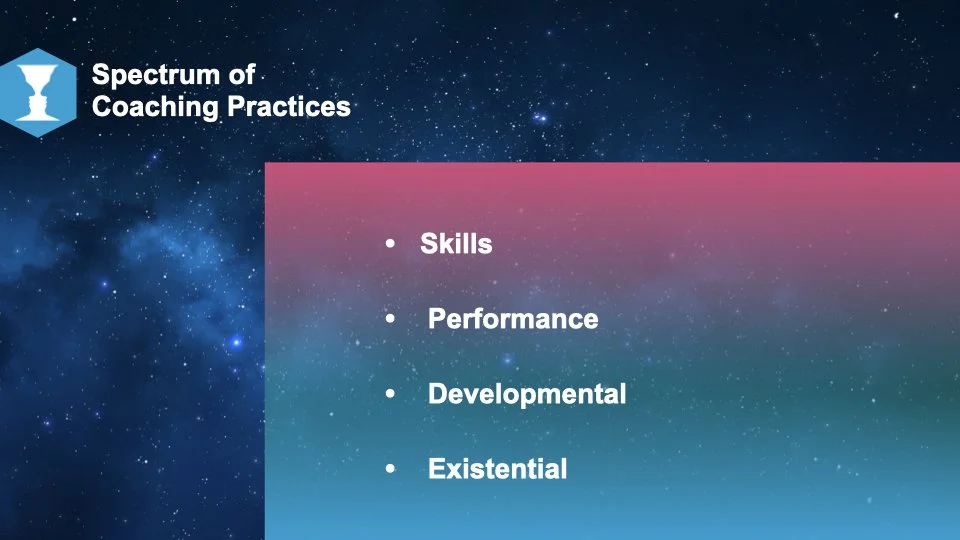
Embodied Dialogue Coaching
Advanced Coaching skills - Gestalt Embodiment - Foundation Programme
Embodied Dialogue Coaching
Foundation Programme in Gestalt Skills Dates & fees
This course will be delivered over five sessions, running from 9.00am - 12.30pm UK time, on the following dates:
10th September, 11th September, 17th September & 25th September plus follow-up 29th October 2025 from 2pm - 4pm UK time
Then on the following dates:-
4th November - 9.00am - 12.30pm UK time
5th November - 9.00am - 12.30pm UK time
25th November - 9.00am - 12.30pm UK time
26th November - 1pm - 4:30pm UK Time
8th December 2025 - 1pm - 3pm UK time
Cost £950 exc VAT
………………………………………………………………………………..
Additional In-Person programme in Belfast 22 & 23 September 9am - 5pm contact John Hill for booking and further information John@jhillBelfast.com
Personal and professional benefits
We asked past participants, experienced coaches, what they had gained from previous Gestalt programmes. This is what they said:
“Learning to tolerate ambiguity and uncertainty rather than being overwhelmed by it has given me greater confidence and stronger presence in my coaching business leaders”
Paul Maunder
“John was great at breaking down the complex Gestalt process that I’d struggled with in the past. I understood the point of staying with emotional experiences and gradually, gained confidence in working in this way rather than moving (too quickly) to action.”
Beth Watson
“Rather than intervene and try to manage awkward, anxious situations, l can now facilitate those difficult times and allow something creative and more effective to emerge”
George Atkinson,
Managing Partner
The experiences I had helped me to overcome the awe I've had towards Gestalt. And it's all about awareness! Increasing client's self awareness to bring about change….This is the way of being I'm looking for in myself and also in other people.
Riina Varts Estonia
This workshop as shown me a light and fun way Gestalt can be applied creatively to raise awareness. I feel very confident taking this forward into my coaching practise.
Charlotte Thompson
“This way of working required much more personal involvement than I was used to. It was quite daunting at first, but strangely a lot less effort and surprisingly effective”
Jenny Chang, Shanghai
Positioning Gestalt in the Coaching profession
Performance coaching eg. GROW model, is solution focused and oriented to behaviour change. It addresses the way individuals and teams achieve goals, targets and objectives and most applicable for managerial issues
Developmental coaching, eg Gestalt, works at a more profound level - focusing on beliefs, values, attitudes and the effect on people’s relationships. It addresses how individuals and teams experience and react to change so most applicable for leadership issues
Revisit the video from the introductory series
The Six Elements of the Learning Context
In order to create the maximum opportunity for experiential learning the programme combines these six elements:
1. Group Psychological Safety
The experiential work and practice requires a high degree self-disclosure and willingness make mistakes . So we invest time, contracting, boundary setting, building support, discussing the impact and value of taking personal and practitioner risks.
2. Theoretical Positioning
I provide a sound cognitive structure to understand the experiential & skills work through:
· Pre-programme reading and video material
· Slides to support the theory presentation
· Theoretical discussion of coaching examples
· Constant opportunity for Q&A
3. Experiential Exercises
These provide experience that illustrate and bring to life the theoretical material in a very focused and specific way. It’s an opportunity to gain personal insights and learning as well as providing interventions for skills practice
4. Coaching Demonstrations
Prior to each skills coaching practice session I’ll provide the theoretical background, explain the focus for the session, highlight the skills required then do a demonstration with one participant to show how it all comes together then discuss it afterwards.
5. Skills Practice
The core of the programme is practicing new skills with a live participant client and receiving peer/ Faculty feedback. Experimenting in forming interventions in a Gestalt way and unlearning the traditional desire to plan and control.
6. Reflection on Practice
A key part of the learning process is reflection - so there is ample time to share confusions and insights through discussion and feedback – linking together practice, personal experience, and theory.
structure
of the virtual Programme
Four days 9am - 12.30pm UK time
To provide this optimal learning context, there will be a ratio of one faculty to six participants. The virtual format of the training consists of:
Plenary group for presentation and discussion of theoretical material
Breakout Pairs and Trios for experiential exercises
Skills Practice breakout pairs of Coach/Coachee with Faculty rotating and giving feedback.
This virtual format works extremely well both in terms of experience and efficiency. By carefully structuring the programme around the six elements, participants have commented on how much fun it is and how safe it feels to try new ways of working.
Each group attracts a wide range of nationalities which adds a cultural dynamic to the learning.
Working language is English – however I encourage participants to use their native tongue when required.
Foundation Programme Dates & fees
This course will be delivered over five sessions, running from 9.00am - 12.30pm UK time, on the following dates:
10th September, 11th September, 17th September & 25th September with an additional two hours on 29th October 2025 from 2pm - 4pm UK time
Then on the following dates:-
4th November - 9.00am - 12.30pm UK time
5th November - 9.00am - 12.30pm UK time
25th November - 9.00am - 12.30pm UK time
26th November - 1pm - 4:30pm UK Time
8th December 2025 - 1pm - 3pm UK time
Cost £950 exc VAT











